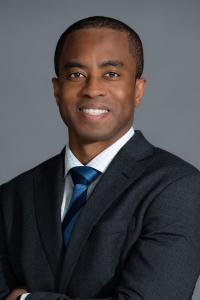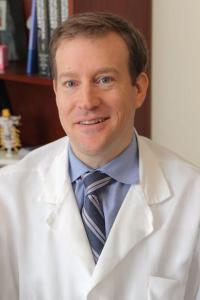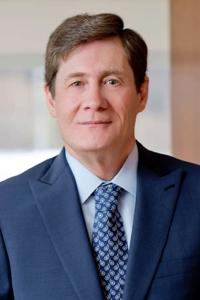
Brainwaves 2025 Recap
An NYC Neurosurgery Conference Fueled by Innovation and Collaboration
The second annual Brainwaves: Columbia Neurosurgery Brain and Spine Review took place September 25–26, 2025, drawing a packed room of neurosurgeons, neurologists, trainees, and neuroscience professionals to The Standard Hotel, High Line in New York City for two days of advanced clinical updates, case-based discussions, and interdisciplinary exchange.
Hosted by Columbia Neurosurgery, the conference offered attendees the opportunity to earn CME credits while engaging with some of the most respected leaders in brain and spine care.

This year's program covered the full spectrum of neurosurgical practice—including brain tumors, spinal deformity, functional and endovascular neurosurgery, glioma surgery, epilepsy, AI in neurosurgery, and pediatric innovations. Attendees heard from Columbia faculty and distinguished guests from top institutions across the country.
Keynote sessions were delivered by two of the field’s most influential voices. Dr. Michael Wang, Chief of Neurosurgery at the University of Miami Hospital, offered forward-looking insights on the evolution of minimally invasive spine surgery. Dr. Fred Barker, Editor-in-Chief of the Journal of Neurosurgery, shared a powerful reflection on the current state and future direction of neurosurgical oncology.

The passion in the room was incredible,” said Dr. Dean Chou, Brainwaves Course Director and Vice Chair of Neurosurgery at Columbia. “These weren’t just lectures—they were conversations. People were asking hard questions, challenging each other, and really pushing the field forward.
The conference encouraged rich, real-time engagement throughout, with lively Q&A sessions and thoughtful debate. Topics ranged from cutting-edge surgical techniques and trial design for glioblastoma to the integration of artificial intelligence and robotics in neurosurgical decision-making. Faculty and attendees alike spoke openly about challenges and innovations in a field that’s evolving faster than ever.

The future of neurosurgery lives in discussions like these,” said Dr. Raymond Sekula, Course Director and Vice Chair and J.L. Pool Professor of Neurosurgery. “There’s so much energy when people are willing to exchange ideas, challenge dogma, and learn from each other. That’s what Brainwaves is about.
Beyond the lecture hall, the event’s Hudson River–facing terrace provided space for continued conversations, connection-building, and idea-sharing. With 10 industry sponsors on site, attendees were also able to explore emerging surgical tools and technologies that are reshaping modern neurosurgical practice.

The conference experience was elevated by a carefully curated setting: generous food spreads, scenic views, and vibrant networking opportunities carried the momentum throughout both days.
As Brainwaves 2025 came to a close, excitement was already building for what’s next.
We’re already planning Brainwaves 2026,” said Dr. Chou. “We’ll be back in New York City on September 24–25, 2026, and our goal is to make it even more interactive, more innovative, and more impactful.

Special thanks to all of our speakers:
- “An Update on CSF-Related Concerns During Spine Surgery” Christopher Mandigo, MD
- “Sagittal and Coronal Alignment: The Latest” Peter Angevine, MD
- “Minimally Invasive Scoliosis Surgery: Doing More with Less” Andrew Chan, MD
- “Keynote: Reflections in Minimally Invasive Spine” Michael Wang, MD, MBA
- “Surgical Management of Conus Medullaris, Cauda Equina and Filum Terminale Tumors” Paul McCormick, MD
- “Spinal Metastatic Disease: A Collaborative Approach” Justin Neira, MD
- “Advances in Minimally Invasive Lateral Surgery” Dean Chou, MD
- “Surgical Consilience in the Optobioelectromechanical Treatment of Glioblastoma” Michael Sisti, MD
- “Cerebrovascular: New Frontiers in Research" Alexander Ramos, MD
- “The Neurosurgery Podcast – Columbia Neurosurgery on Latest Controversies” Michael Wang, MD, MBA & E. Sander Connolly, MD
- Medtronic Sponsored “Fusion Level Selection: When to Go Long, When to Go Short” Dean Chou, MD
- “Keynote: Reflections on Neurosurgical Oncology” Fred G. Barker, MD
- “Can We Deliver a Cure for Glioblastoma?” Jeffrey Bruce, MD
- “The Role of Surgery and Trials in Recurrent Glioblastoma” Brian J. A. Gill, MD
- “The Role of Transposition vs. Interposition in Microvascular Decompression Surgery” Raymond Sekula, MD
- “Focused Ultrasound in Functional Neurosurgery” Gordon Baltuch, MD
- “Advances in Laser Interstitial Thermal Therapy” Brett Youngerman, MD
- “Patient Outcomes in Glioma and Epilepsy Surgery” Guy McKhann, MD
- Carlsmed Sponsored “AI-Enabled Surgical Planning and Patient-Specific Devices: How aprevo® Is Shaping the Future of Personalized Spine Surgery” Andrew Chan, MD
- “In Utero Myelomeningocele Repair - Evolution and Current Practice” Neil Feldstein, MD
- “Vertebral Body Tethering for Adolescent Idiopathic Scoliosis – State of the Union and Future Directions” Taemin Oh, MD
- “An Update on Open CV Surgery in an Endovascular Age” E. Sander Connolly, MD
- “Endovascular Treatment of Migraines” Grace Mandigo, MD
- “Update on Technological Advancements in Endovascular Neurosurgery” Sean Lavine, MD
- “An Update on Peripheral Nerve Biopsy” Chris Winfree, MD
Interested in joining us next year?
Stay connected for updates on Brainwaves 2026, Columbia’s annual academic neurosurgery conference bringing together the best in brain and spine care. Register early here.





